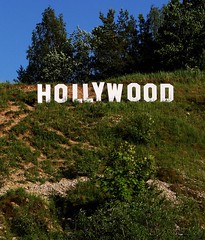AP Language Rhetorical Terms Flashcards
Terms : Hide Images [1]
| 14723616994 | Alliteration | Repetition of initial consonant sounds |  | 0 |
| 14741190759 | Anaphora | the repetition of a word or phrase at the beginning of successive clauses |  | 1 |
| 14741191599 | Antithesis | the direct opposite, a sharp contrast |  | 2 |
| 14741192572 | Apostrophe | A figure of speech that directly addresses an absent or imaginary person or a personified abstraction, such as liberty or love. |  | 3 |
| 14741200986 | Assonance | Repetition of vowel sounds |  | 4 |
| 14741200987 | Chiasmus | a rhetorical or literary figure in which words, grammatical constructions, or concepts are repeated in reverse order, in the same or a modified form |  | 5 |
| 14741203582 | Connotation | an idea or feeling that a word invokes in addition to its literal or primary meaning. |  | 6 |
| 14741204729 | Denotation | the literal meaning of a word |  | 7 |
| 14741205799 | ethos | credibility/moral |  | 8 |
| 14741208097 | Epistrophe | the repetition of a word at the end of successive clauses or sentences |  | 9 |
| 14741211096 | Euphemism | An indirect, less offensive way of saying something that is considered unpleasant |  | 10 |
| 14741212011 | hyperbole | exaggerated statements or claims not meant to be taken literally. |  | 11 |
| 14741212012 | irony | the expression of one's meaning by using language that normally signifies the opposite, typically for humorous or emphatic effect. |  | 12 |
| 14741212013 | juxtapose | to place side by side for comparison |  | 13 |
| 14741212881 | litotes | A figure of speech consisting of an understatement in which an affirmative is expressed by negating its opposite. |  | 14 |
| 14741212882 | logos | an appeal based on logic or reason |  | 15 |
| 14741212883 | metaphor | a figure of speech in which a word or phrase is applied to an object or action to which it is not literally applicable. |  | 16 |
| 14741212884 | metonymy | A figure of speech in which something is referred to by using the name of something that is associated with it |  | 17 |
| 14741214404 | Onomatopoeia | A word that imitates the sound it represents. |  | 18 |
| 14741215462 | Oxymoron | A figure of speech that combines opposite or contradictory terms in a brief phrase. |  | 19 |
| 14741215463 | paradox | A statement or proposition that seems self-contradictory or absurd but in reality expresses a possible truth. |  | 20 |
| 14741217637 | parallelism/parallel structure | the repetition of words or phrases that have similar grammatical structures | 21 | |
| 14741219173 | Paralepsis | The rhetorical strategy (and logical fallacy) of emphasizing a point by seeming to pass over it. |  | 22 |
| 14741219174 | pathos | Appeal to emotion |  | 23 |
| 14741219175 | personification | A figure of speech in which an object or animal is given human feelings, thoughts, or attitudes |  | 24 |
| 14741220458 | polysyndeton | the use, for rhetorical effect, of more conjunctions than is necessary or natural |  | 25 |
| 14741220459 | pun | A play on words |  | 26 |
| 14741220460 | rhetorical question | figure of speech in the form of a question posed for rhetorical effect rather than for the purpose of getting an answer |  | 27 |
| 14741221250 | simile | A comparison using "like" or "as" |  | 28 |
| 14741222721 | Synecdoche | A figure of speech in which a part is used for the whole (as hand for sailor), the whole for a part (as the law for police officer), the specific for the general (as cutthroat for assassin), the general for the specific (as thief for pickpocket), or the material for the thing made from it (as steel for sword). |  | 29 |
| 14741222722 | tone | Attitude a writer takes toward the audience, a subject, or a character |  | 30 |
| 14741222723 | Understatement | the opposite of exaggeration. It is a technique for developing irony and/or humor where one writes or says less than intended. |  | 31 |
